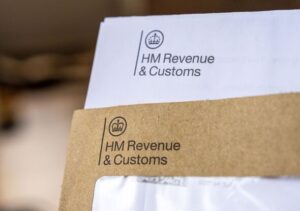
The group reject warnings higher taxes will drive the rich to move overseas (Image: Getty)
The Chancellor has been urged to impose new wealth taxes on the super-rich to rescue public services by a group of “patriotic millionaires”.
The group argue that warnings higher taxes will drive the rich to move overseas or cancel investments in UK businesses are overblown.
And they argue that paying more tax is needed to support the public services, including the NHS and transport system, that are vital to ensure Britain’s economy grows and businesses can succeed.
At the weekend, John Caudwell, the multi-millionaire who founded Phones4U, indicated he would be willing to pay higher income tax, perhaps through adding 5 percent to the top rate, if the money was invested in public services.
While he is not a member of Patriotic Millionaires UK, he said: “I would not move for taxation purposes from the UK at all. I love the UK, I’m patriotic, and I believe I have to pay my fair share of tax, in order to help the poorer citizens of this country.”
Mark Campbell, who co-founded Higgidy pies, said that “real investors” would not be scared off if Rachel Reeves equalised capital gains tax (CGT), which is typically charged at 20 percent, with higher rates of income tax on salaries, which are 40 percent or 45 percent.
However, other finance experts have suggested any such change would not only hit the super-rich, but rather would take a chunk out of the incomes and wealth of people with much more modest means.
He said: “The UK needs a fairer tax system to invest in its future, and those of us who’ve benefited the most should contribute more so that we have a healthy society and economy for future entrepreneurs to operate within.”
The call for higher taxes from the group Patriotic Millionaires UK forms part of a report by the Institute for Public Policy Research (IPPR).
The think tank, whose former executive director Carys Roberts joined the Number 10 policy unit after Labour was elected, has urged the Chancellor to increase capital gains to the same rate as income tax. Some sort of increase in CGT is now on the cards, but there are doubts the Chancellor will go as far as to equalise the rates with income tax.
Pranesh Narayanan, research fellow at IPPR and author of the paper, said: “The recent fear mongering from some that increasing capital gains tax will take the economy back to the stone ages is pure hyperbole.
“It was famously pro-growth Conservative chancellor Nigel Lawson who equalised capital gains tax with income tax rates in the first place.”
The IPPR said it had been in touch with “multiple millionaires” in recent weeks who it said had insisted that equalising capital gains and income taxes would make no difference to their entrepreneurial pursuits.
Julia Davies, an investor who made her money selling her stake in outdoor clothing brand Osprey Europe, told the Telegraph: “If you were speaking to the kind of people that I’m investing in now who are setting up businesses, you find that they’re not alarmed.
“The last thing they’re thinking about is what’s going to happen if it takes off, they sell it later on and make some money. What they’re thinking about at that stage is: how do we get the business going?”
Patriotic Millionaires UK is an offshoot of a US campaign group of the same name, which includes heiress Abigail Disney.
Finance and investments experts Hargreaves Lansdown said its surveys found real anxiety about any new wealth taxes or rises in capital gains tax.
The firm’s head of personal finance, Sarah Coles, said: “It’s all very well saying that millionaire entrepreneurs could take a capital gains tax hike on the chin, but these are far from the only people who would be hit hard by this tax rise.

The Chancellor has been urged to impose new wealth taxes on the super-rich (Image: Getty)
“Ordinary investors with assets outside a stocks and shares ISA could see their tax rate double, which risks flooring them with a horrible tax bill, or forcing them to change their behaviour – which could cause a whole host of other issues.
“Hiking the headline capital gains tax rate could put people off investment altogether – and erect another barrier to entry for new investors. It might also stop people from selling current assets, because they’re worried about the tax. This could force them to make decisions that ultimately leave them worse off.”
She added: “The tax environment should be built to encourage retail savers to invest for the long term, supporting investment in growing businesses and boosting long term resilience.
“Capital gains tax already creates issues here, because it can effectively be a tax on inflation. If you hold investments for the long term, even if all you do is keep pace with inflation, you’ll be taxed on anything over your allowance when you sell up. To make matters worse, the slashing of the annual allowance, so it’s now smaller than any time since 1982, means ever-larger slices of the gain have been pushed into the realms of tax. If the rate of CGT increased, without any other changes, it would make the problem even worse.”
















